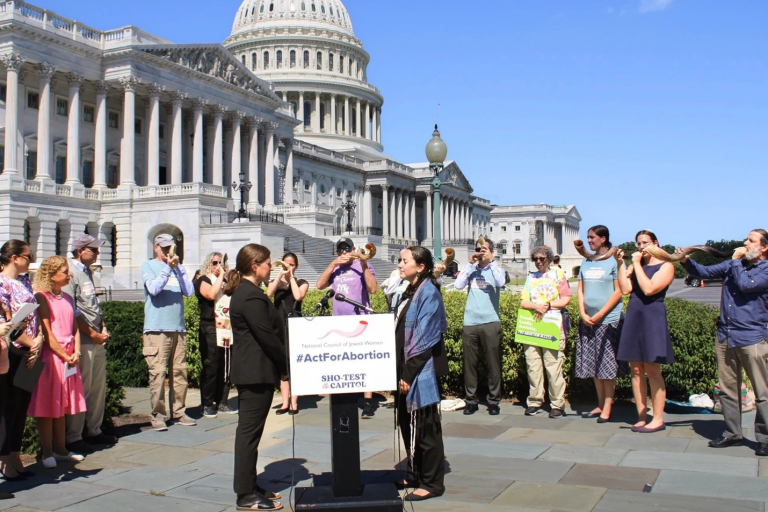By
Published
February 26, 2013
Tags
FOR IMMEDIATE RELEASE Media contact: Jake Sharfman, Puder Public Relations. Office: 212.558.9400; Cell: 248.318.1072; Israel: 077.444.7158 (ext.1); [email protected]
Washington, D.C., February 26, 2012 – A new institute has launched to advance the study of modern Israel in the United States and around the world. The independent, non-partisan Israel Institute will support scholarship, teaching and research in an array of academic and cultural disciplines—including history, politics, international relations, economics, society, culture, art and literature—to foster deeper, more multi-faceted knowledge of modern Israel. The Institute reflects a growing interest in Israel and its fertile academic and cultural landscape over the past four decades, since the field of Israel Studies first began to blossom.
Nearly a thousand faculty members participate in the annual meetings of the Association for Israel Studies in North America, Europe and Israel, and an increasing number of Israel Studies centers and programs are in place. Moreover, according to a recent report by Brandeis University’s Cohen Center for Modern Jewish Studies, there has been a 69 percent increase in the number of Israel-focused courses at four-year colleges and universities across the U.S. since 2005. The study shows these courses are being offered on an ever-broader range of topics that go well beyond the Arab-Israeli conflict and peace process. The Institute will help to meet the increasing demand for more extensive offerings about Israel across a wider array of institutions, especially within the academic and research communities, and will work closely with existing institutions. Ambassador Itamar Rabinovich will serve as President of the new Institute.
Rabinovich was Israel’s ambassador to the United States and chief negotiator with Syria from 1992 to 1996. He is a renowned scholar on the Middle East, former President of Tel Aviv University and currently a Distinguished Global Professor at New York University. “The State of Israel is an intellectual, scientific, artistic and technological hub,” said Ambassador Rabinovich. “Discussions of Israel, however, often focus on conflict, and while this issue merits careful analysis, there are other aspects of Israel worthy of study in the policy community and the academy. The rise of Israel Studies presents an opportunity to connect students, intellectuals, artists and policymakers to Israel’s vibrant society and culture and provide resources and relationships that can help the fruits of their work reverberate out in wider circles.” The Israel Institute will advance scholarship and research focused on modern Israel by providing, among other offerings:
- Doctoral and Post-Doctoral fellowships in Israel Studies;
- Research grants for scholars, academics, policy analysts and independent researchers in Israel Studies around the world;
- Visiting professorships on U.S. and European campuses for senior Israeli academics and policy experts;
- Internships at Washington, D.C., think tanks for policy-oriented Ph.D. candidates;
- Residencies for Israeli artists to teach, exhibit and expose audiences to the diversity of Israel in the U.S. and abroad;
- Student fellowships in English-language Israel Studies programs at Israeli universities; and
- Long-distance learning in collaboration with Israel’s Open University.
In addition, the Institute will foster academic exchanges between Israel and other countries; host conferences for academics, researchers and policymakers in coordination with top universities and think tanks; support educational seminars in Israel for university leaders; and enable the development and publication of books and other resources for academics and other interested parties. In February, the Institute is cosponsoring a conference at Brandeis University on Zionism in the 21st century; in March, at American University on Israel Studies and Jewish Studies in America; and in June, the annual meeting of the Association for Israel Studies. It is also organizing its own conference in October that will focus on major issues and developments in the field of Israel Studies. Moreover, the Institute is already supporting a partnership between the University of Maryland and Tel Aviv University to link the universities’ Israel and Jewish Studies programs and is collaborating with the University of Arizona to develop a professorship in Israel Studies. Internationally, the Institute is facilitating collaborations between Chinese and Israeli universities, academics and policymakers, bringing Chinese and other scholars to Israel in the summer of 2013. It is also participating in a broader effort to bring visiting Israeli professors to Oxford and the University of Munich during the 2013-14 academic year.
The Israel Institute's newly hired executive director, Dr. Ariel Roth, holds a Ph.D. from Johns Hopkins University, where he was the founding director of the school's Global Security Studies graduate program. Dr. Roth has also written about Israeli security doctrine and the strategic basis of U.S. military support for Israel. The Institute’s Advisory Board and Board of Directors include renowned academics and heads of Israel Studies centers at leading universities in North America, Europe and Israel. Initial funding has been provided by the Charles and Lynn Schusterman Family Foundation, a member of the Schusterman Philanthropic Network, which has been at the forefront of expanding opportunities for students to study modern Israel in academic environments that promote exemplary teaching and scholarship. “We have seen a growing commitment to the study and exploration of Israel taking root across the U.S. and well beyond,” said Lynn Schusterman, Co-Chair of the Charles and Lynn Schusterman Philanthropic Network. “The Israel Institute will be at the vanguard of advancing the field by investing in a range of efforts to educate and engage young people with contemporary Israel in all of its richness and complexity.”
Leading figures in academia, research and think tanks believe the Israel Institute will generate more comprehensive opportunities within their respective fields to gain deeper insight into Israel and will make significant contributions to enhancing the broader Israel Studies landscape. “I applaud this serious, non-partisan effort to illuminate the culture and institutions of Israel through intellectual initiatives and collaborations,” said University of California President Mark G. Yudof. “There is a growing appetite for knowledge about Israel beyond the news of the day, and the Institute is responding with scholarship, teaching and research.”
More information about the Israel Institute can be found at israelinstitute.org.
About the Israel Institute The Israel Institute works in partnership with leading academic, research and cultural institutions to enhance knowledge and study of modern Israel in the United States and around the world. Founded in 2012 as an independent, nonpartisan organization based in Washington, DC, the Institute supports scholarship, research and exchanges to build a multi-faceted field of Israel Studies and expand opportunities to explore the diversity and complexity of contemporary Israel.




